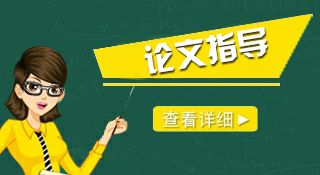英文文献综述格式
作者:2022-05-25阅读:
次文章来源:网络整理
Literature review在发表中占有非常重要的地位,一篇优秀的Literature review能够使读者从中收益,因此,Literature review的发表方法很重要,本文就Literature review发表进行了详细的论叙。
literature review的格式是什么?怎样才能好literature review?
一篇Literature review按照内容可以分为三个部分:
1、这篇literature的概况。谁的?在哪儿的?哪年发表的等等……
2、这篇literature的内容。
3、你对这篇literature的看法。
详细点来说是这样的:
第一部分:文学作品概况
这部分是最为简单和公式化的,内容主要是文学作品的作者,作者所处的位置,文学作品的出处:会议论文还是期刊,或者是网上的资料,文学作品的读者是哪些。如果有必要,可以在这部分加入对文学作品整体的简略评价。
第二部分:文学作品内容
这部分也是比较公式化的。因为每一篇合格的论文都会包含一下的几个部分:
1.background 背景
2.problem/hypothesis 问题/假设
3.solution/argumentation 解决方案/论证
4.experimental test/conclusion 实验/结论
把每个点用一句话来概括就可以了,要注意的是不必叙述每个细节,把文学作品的主线理清楚就可以了。
第三部分:你的看法
这部分是最为重要的,你的评价应该直接反映该篇文学作品对你的研究有何意义、文学作品的强处以及弱处。你对文学作品的评价可以分为三层。最高层的是对文学作品的内容的评价, 例如方法是否新颖,解决的问题是否有意义,所用的实验步骤、实验对象是否合适,结论是否正确。第二层是关于文学作品的结构和风格的,如论述的组织是否合理,论 证的过程有没有漏洞,文学作品的段落结构有没有问题等等。最底层的是关于文学作品的用词以及语法方面的评价,句子是否通顺,词语是否恰当,有没有更好的表达方式等 等。三层的重要性是递减的,最上面的那一层是最重要的,这应该是你读文学作品的重点,也应该是你Review的重点。
下面是一个典型的Review,希望大家通过认真研读,能够从中得到启示。
摘要:In this paper, deception is considered as a communicative strategy. The author analyzes deception from a dynamic perspective. This will deepen the understanding of deception in daily communication. The previous papers mainly analyze deception in terms of its adaptability, but they do not make a detailed analysis of its pragmatic strategies and effects.
And it emphasized the importance of the maxim of Quality. He believes that the speaker who violates Quality of Maxim is lying and lying is a moral offence. However, there exists a lot of deception in language interactions and Cooperative Principle can not explain it forcefully. Then, Leech put forth the Politeness Principles (PP) with the intention to ‘rescue’ Grice’s Cooperative Principle (CP). He held that people use deception in consideration of politeness.
His PP is further categorized into six main maxims, which go in pairs as follows:
1) Tact Maxim;
(a)Minimize cost to other [(b)] Maximize benefit to other;
2) Generosity Maxim;
(a)Minimize benefit to self [(b)] Maximize cost to self;
3) Approbation Maxim (in expressive and assertive);
(a)Minimize dispraise of other [(b)] Maximize praise of other;
4) Modesty Maxim (in expressive and assertive);
a) Minimize praise of self [(b)] Maximize dispraise of self;
5) Agreement Maxim (in assertive); a) Minimize disagreement between self and other [(b)] Maximize agreement between self and other
6) Sympathy Maxim (in assertive).
The most adequate illustration of deception from the pragmatic angle stems from He Ziran and Zhang Shuling in domestic. They view this phenomenon from the angle of adaption theory. According to Jef Verschuren, using language must consist of the continuous making of linguistic choices, consciously or unconsciously. The choice of deception is to adapt to the mental, social or physical world of the speaker or the listener. Though the studies of deception of the two scholars from pragmatic perspective is comprehensive, they ignore deception in pragmatics is a strategy. And the use of deception is not just out of politeness, their interpretation is not systematic.
It is Qian Guanlian who first studies the topic of true and false speech. He classified the false information into two kinds: profitable false speech and functional false speech. The former consists of “false speech to injure others” and “false speech to benefit others”. In the article “False Information”, Professor Qian classifies the deceptive information into beneficial or harmful false information, and functional false information). The false information which is used to deceive the addressee deliberately is called beneficial or harmful false information. Falsity in the beneficial or harmful false information is not known to the addressee. Professor Qian further classifies it into two kinds: beneficial false information and harmful false information. The false information which is controlled under certain background and can be used to achieve some special effects is called functional false information. All in all, Qian’s False Information is helpful in improving the understanding of deception.
Actually, the linguistic study of deception is still on the infant stage. Compared with the researches made by foreign scholars, the researches made by Chinese scholars are still not enough.
In addition, most of the studies from the linguistic perspective concentrate on the pragmatic, semantic or cross-cultural fields both at home and abroad. In general, linguistic studies of deception are fragmentary and no comprehensive theoretical framework has been evolved to explain deception fully. What’s more, few probe deception from the pragmatic strategy perspective. It is of great importance to notice that deception can be helpful to achieve specific pragmatic effects, both as a means of communication and also as a way of expressing personal information. In this case, it was of necessity to approach deception from the pragmatic angle. One problem deserves our attention is that domestic studies of deception is disadvantaged compared with the overseas studies with excessive focus diverted to the morality of deception. It was not until 1980s that the linguistic study of deception emerged at home. Therefore, the study of deception based on empirical evidences from the sociolinguistic perspective is not only meaningful but also vital and urgent. Besides, few scholars integrate deception with Chinese traditional works to analyze its pragmatic effects.
As a pragmatic strategy, deception is frequently used to achieve certain effects in our daily conversations. Different kinds of deception in certain context can cause different effects. Deception can be classified into beneficial false information and harmful false information according to Qian’s False Information Theory(Zhang, 2006:8).Beneficial false information means that the deception we use is beneficial to others; harmful false information means that the deception we use is harmful to others.
However, deception occurred in daily life is not given the same attention. Comparatively speaking, the research of it conducted in pragmatic and sociolinguistic field is even more backward.
最近相关
- [经济理论] 马克思休闲思想的当代诠释浅析
- [经济理论] 马克思与凯恩斯的宏观经济理论比较浅谈
- [经济理论] 浅谈马克思劳动异化理论对于如何更好实现“以
- [经济理论] 中央经济工作会议重点亮点解读
- [经济理论] “理论经济学”教学方法改革之深层探讨
- [经济理论] 方法论对中国政治经济学建设的指导作用的浅析
- [经济理论] 基于行为经济理论的品牌价值实证探讨
- [经济理论] 莱博维奇的“工人阶级政治经济学”批判浅谈
- [经济理论] 论构建中国特色社会主义经济理论新体系
- [经济理论] 论经管类电子沙盘实验课教学设计与实践反思
- [经济理论] 浅谈“经济人”的现实基础、生成途径与扬弃方
- [经济理论] 浅谈对话哈耶克—新自由主义经济

最新更新
热门推荐
- [企业经济]浅谈上市公司内部控制的作用、存在的问题及对
- 1上市公司内部控制的作用 1.1有利于维护社会各方面的利益 上市公司的经营状况不仅是为了公司的利益,同时也与中小投资者相关,也与代表着国家利益的...[全文]
- [企业经济]浅谈现代企业制度下国有企业党建与企业文化的
- 一、国有企业党建与企业文化结合的基础 1.完善产权制度。通过国有资产所有权在国家、企业、个人二个层次的体现,使企业成为自主联合劳动实体,使工...[全文]
- [服务贸易]浅析企业的社会责任与经济效益
- 一、企业的社会责任与经济效益理论关系 (一) 企业的社会责任定义 1998 年世界企业发展委员会就企业的社会责任作出了定义: 企业社会责任是企业承诺持续...[全文]
- [保险投资]浅析股权信托合同法律问题
- 一、股权信托合同的特征 基于上述对股权信托基本内涵的分析,并结合股权信托合同的特殊性,笔者认为股权信托合同应当至少具有以下基本特征。 (一...[全文]
- [会计审计]论地方供电企业内部审计信息化现状及发展的思
- 近年来,随着信息技术的蓬勃发展,其在各行各业中的应用不断深入,而作为我国主要的行业之一,电力企业也迫切需要结合信息技术,实现内部审计信息...[全文]
- [会计审计]财会类专业经济法教学改革探索
- 经济法是CPA考试和会计职称考试的考试课程,对财会类专业的学生和从业人员而言,其重要性毋庸置疑。除应试之外,各高校为财会专业设置经济法课程的...[全文]
- [会计审计]会计电算化对审计影响及对策
- 会计电算化使审计面对的是运用、研究和评价计算机数据处理系统,从而对审计工作的很多方面产生了新的影响,提出了一些新的要求。下面是 速成论文网...[全文]
- [会计审计]探究内部审计定位及其发展趋势
- 随着改革开放的不断深入和经济全球化发展,我国的各个领域也不断与国际接轨,更加趋于规范。但是,相较于国际内部审计协会的定义而言,我国企业的...[全文]
- [财政税收]对“医养结合”的养老模式的发展探究
- 以哈尔滨市医养结合养老模式发展现状为例 一、医养结合养老模式的概念阐释 医养结合养老模式是指医疗资源与养老资源相结合,从而在老龄社会背景下...[全文]



